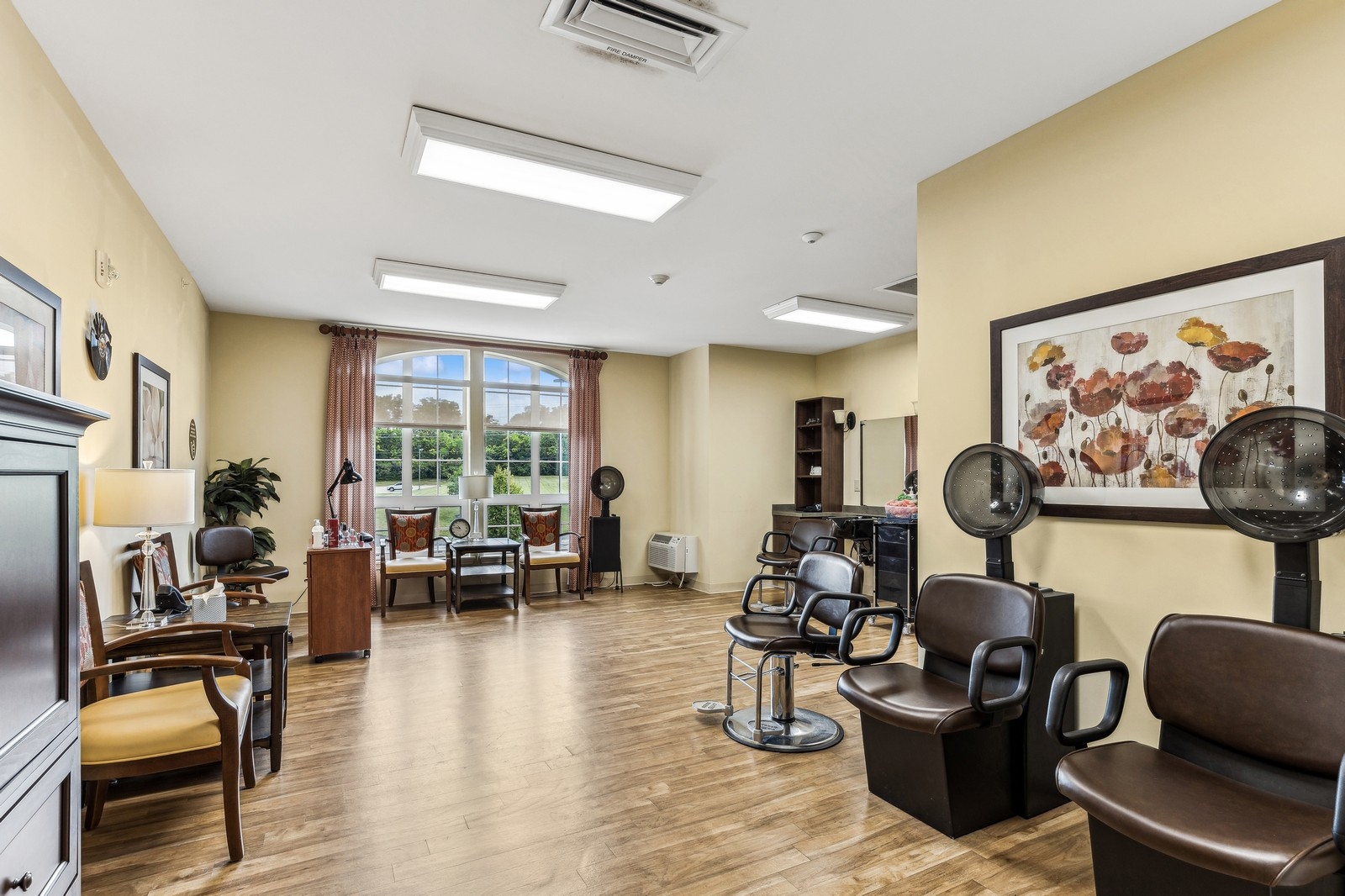Caring for a loved one with Alzheimer’s or dementia can be a deeply emotional journey filled with challenges and complex decisions. But therapeutic activities can spark joy, improve well-being, and connect you and your loved one on a deeper level.
At The Enclave of Springboro, we aim to support both our residents and their families by sharing ideas, tips, and resources to help you create meaningful moments and enrich the lives of your loved ones.
We recommend activities like:
- Reminiscence therapy
- Music therapy
- Art therapy
- Nature therapy
- Physical exercise
The Importance of Engagement
Alzheimer’s and dementia are not just medical conditions; they are life-altering experiences. Engaging with loved ones with these conditions is more than a pastime—it’s vital to their care and comfort.
As cognitive decline progresses, simple pleasures and day-to-day activities that once brought a sense of achievement can become difficult. However, tailoring activities that resonate with their past, bring joy, and foster a connection with their current environment can significantly improve their mood and cognitive function. Therapeutic activities can provide enjoyment and serve as anchors, grounding seniors in a sense of self and the world around them.
Each interactive experience you provide for your loved one helps bridge gaps in memory and time. Through these activities, we aim to keep the light of expression and recognition alive.
Activity 1: Reminiscence Therapy
Reminiscence therapy encourages seniors to discuss past experiences, from childhood memories to career highlights and family life events. Recalling these memories can often unearth many emotions, from laughter to tears, which can be cathartic.
The key to successful reminiscence therapy is creating a safe and supportive environment. Set the stage with mementos, photographs, and familiar music related to the period your loved one is reminiscing about. Ask open-ended questions that prompt detailed responses and provide gentle encouragement to continue the narrative.
The goal isn’t to test their memory but to foster connection through shared storytelling. Triumphs, passions, and even mundane yet significant life moments hold the power to evoke recognition and deep-seated emotions, reinforcing their sense of identity.
Activity 2: Music Therapy
Even when verbal communication becomes difficult, familiar songs can still spark a connection. Hearing a favorite melody might trigger happy memories, joy, and emotional release. Music therapy uses familiar songs and musical elements to engage individuals with dementia and improve their well-being.
Tailor your music choices to the era your loved one is most familiar with. Create playlists featuring popular tunes, vaudeville melodies, jazz standards, or classical masterworks that trigger memories and emotional responses.
Engage in sing-alongs or gentle dancing if the environment allows, and watch their body language for signs of enjoyment. Sometimes, providing headphones with comforting melodies can elicit relaxation and stimulation.
Activity 3: Art Therapy
Art therapy is a powerful way for seniors to express themselves creatively, even when verbal communication is limited. It can stimulate the mind, encourage fine motor skills, and serve as a visual history of their emotions and perceptions.
Prepare a space with basic art supplies such as colored pencils, markers, or painting materials. Suggest simple projects like drawing a scene from their childhood home or painting with watercolors for a soothing experience. The goal is not artistic mastery but the act of creating itself.
When done, review and discuss the artwork, asking about the choice of colors and shapes and what the piece means to them. This conversation can help reveal the inner workings of their mind while providing a means for emotional release.
Activity 4: Nature Therapy
Experiencing nature, even in small doses, can profoundly affect the human psyche. For those with Alzheimer’s and dementia, nature can be calming and refreshing. A garden visit or a houseplant can provide peace and connection to the world.
If your loved one is mobile, accompany them on walks in tranquil natural settings. If they have limited mobility, you can bring elements of the outdoors inside with growing plants, fresh flowers, bird feeders at the window, and recordings of nature sounds.
Schedule short walks or quiet moments outdoors each day, even if it’s just sitting on a patio or by a window. Focus on what your loved one can see, hear, and smell. Point out the changing colors of leaves, the chirping of birds, or the warmth of the sun. This simple routine can spark curiosity and promote a sense of calm.
Activity 5: Physical Exercise
Physical exercise is as essential for those with Alzheimer’s and dementia as it is for anyone. It enhances circulation, maintains muscle strength, and can slow cognitive decline. Tailoring exercises to their abilities and interests is key to encouraging regular physical activity.
Gardening, gentle yoga, and walking are excellent forms of exercise. Choose safe exercises: proper alignment for yoga poses, a supportive walking path, and assistance with new gardening projects.
Focus on consistency rather than intensity. Set simple, achievable goals and celebrate each step towards improvement. The activity should be about the joy of movement and their sense of accomplishment with each session.
Find Dementia & Alzheimer’s Support at The Enclave of Springboro
Engaging a senior loved one with Alzheimer’s or dementia in therapeutic activities is about crafting moments that resonate with their identity. By incorporating these activities into their loved one’s care plan, families can offer a profound sense of connection and continuity.
At The Enclave of Springboro, we understand the importance of purposeful wellness. Our dedicated team works closely with residents and families to create personalized activity plans that spark joy and support cognitive function.
Contact The Enclave of Springboro today to schedule a visit and discover how our purposeful wellness programs can enrich your loved one’s life.











